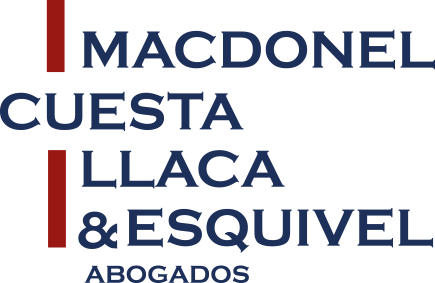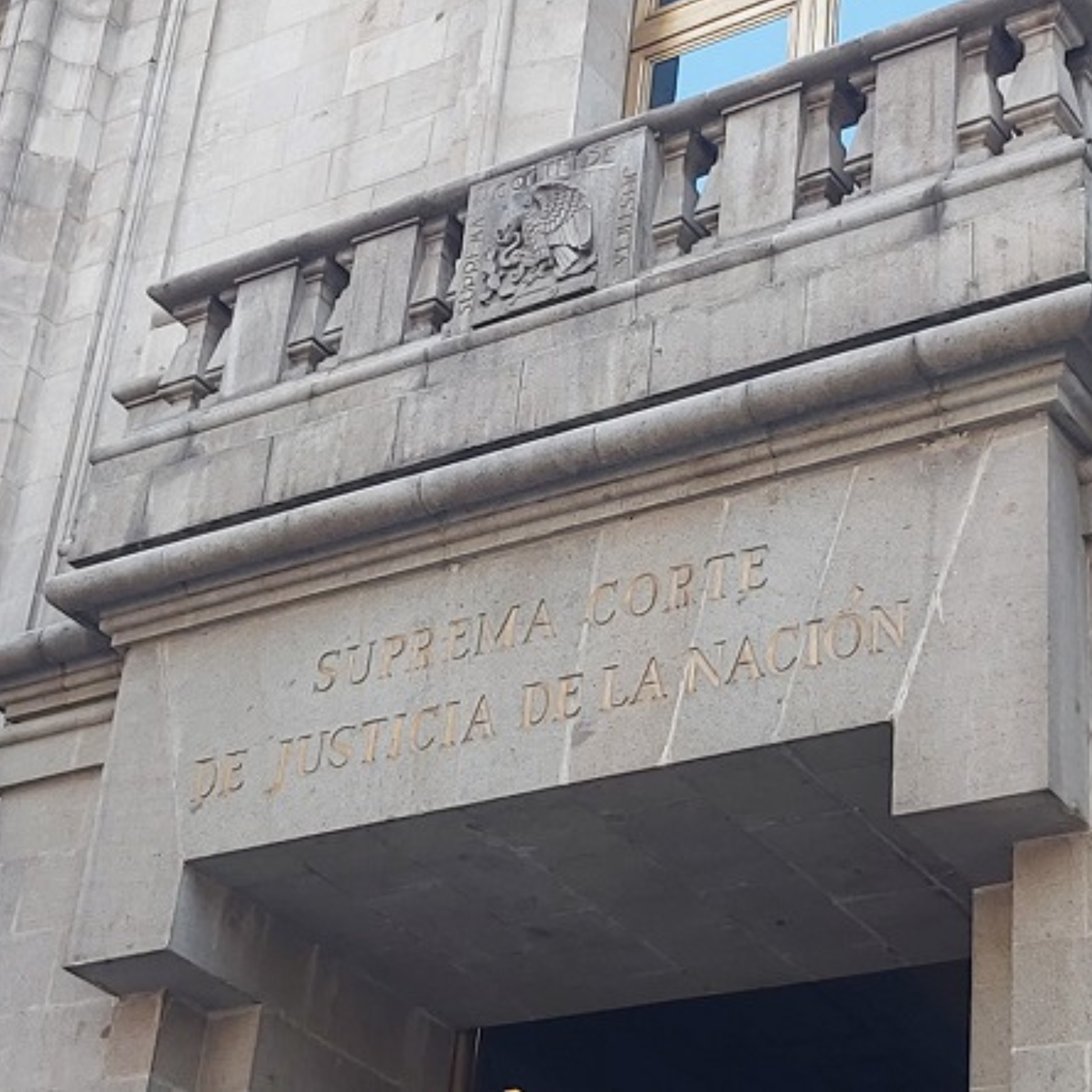Jaqueline Piña Monroy
TEAM
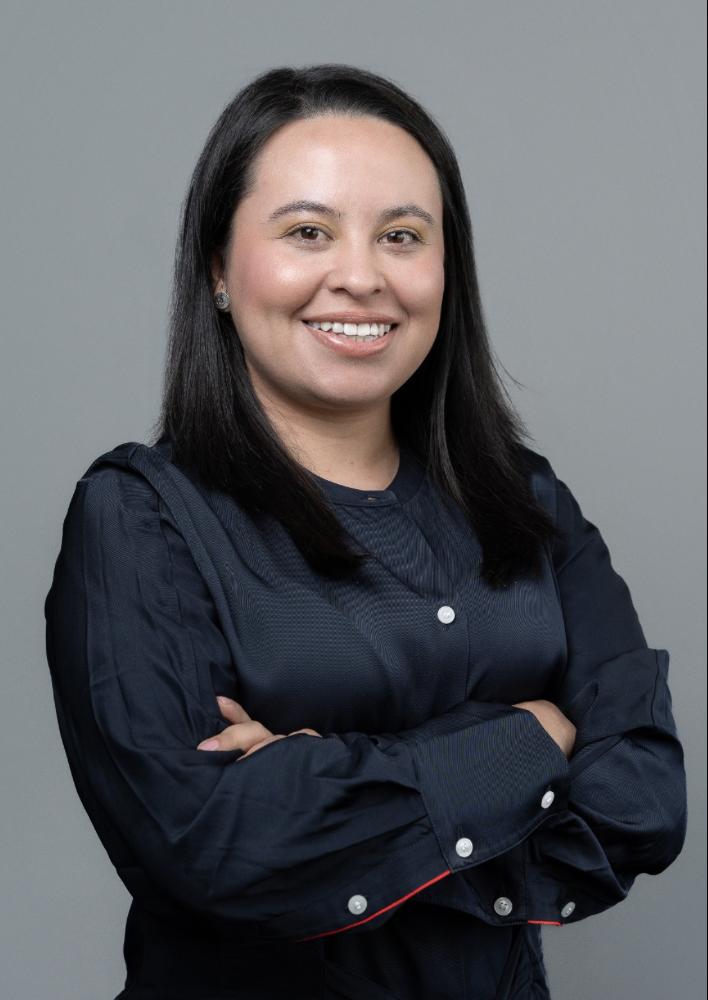
A graduate of the YMCA University School of Law, where she received her law degree, Jaqueline Piña Monroy specializes in corporate law.
Ms. Piña Monroy has several postgraduate studies, including a specialization and a master’s degree.
SPECIALIZATION AREAS
Piña Monroy has been dedicated to corporate consultancy, specialising in business matters. In addition, Jaqueline has developed diverse negotiation skills that allow her to advise her clients with a human and legal perspective, focusing her expertise on the resolution of conflicts between individuals and legal entities.
Spanish and English
STUDIES
- Law degree. Universidad YMCA. 2017
- Criminal Law Specialization. Universidad YMCA. 2018.
- Master of Laws. Universidad YMCA. 2019.
- Diploma in Amparo Trial. Suprema Corte de Justicia de la Nacion. 2022
REPRESENTATIVE MATTERS
As a public servant in the Secretariat of Urban Planning and Public Works of the Municipality of Naucalpan de Juárez, State of Mexico, Ms. Piña Monroy managed the reactivation of 150 files relating to various Common Administrative Procedures, obtaining the execution of various resolutions issued from 2011 to 2018.
Cristopher Osorio
TEAM
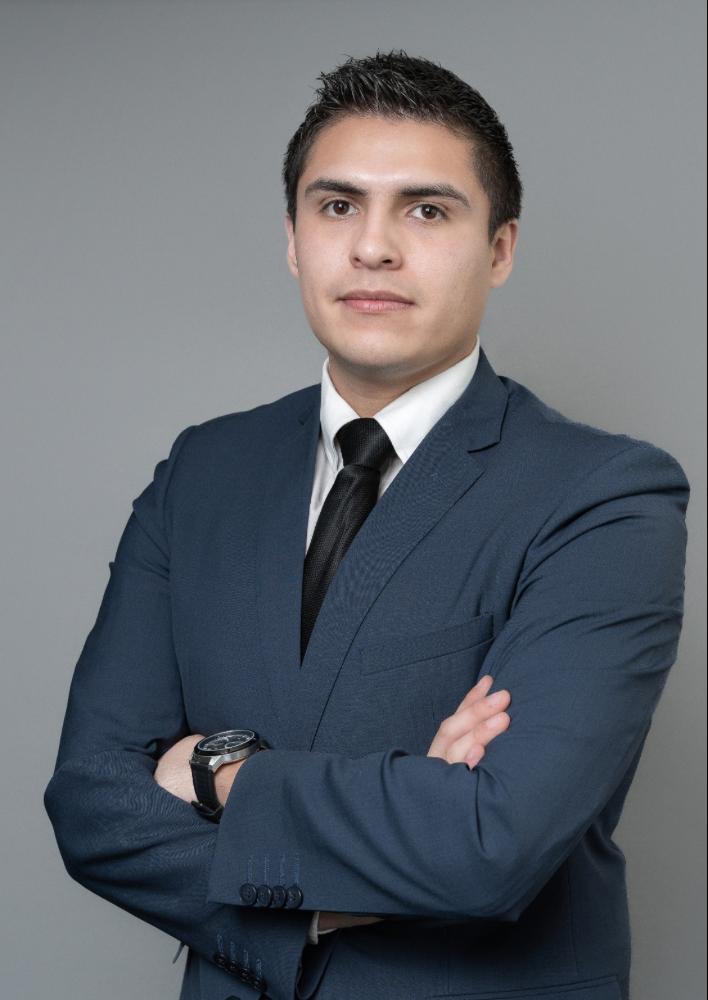
A graduate of the Universidad Autónoma Metropolitana, Cristopher has specialised his practice in civil, commercial and administrative litigation. For this reason, he has a deep understanding of the legal framework and laws pertaining to these matters, coupled with a unique ability to provide solutions to complex legal situations.
Cristopher is also known for keeping up to date with the latest laws and regulations pertaining to the legal forum, which allows him to work more effectively and in close collaboration with his clients, in order to develop solid strategies for their benefit.
SPECIALIZATION AREAS
Mr. Osorio has participated in the research of contemporary legal phenomena for the elaboration of reform projects and law initiatives.
Spanish and English
STUDIES
- Universidad Autonoma Metropolitana Law Degree 2015 – 2019.
- Universidad Abierta y a Distancia de Mexico. Bachelor’s Degree in SME Management and Administration. 2016 – 2023.
- Course for applicants for the position of civil court secretary or clerk. Poder Judicial del Estado de Mexico. 2023- 2024
- Virtual attendance at the Introduction to the study of the National Code of Civil and Family Proceedings. Consejo de la Judicatura Federal. 2023
- Online seminar “El levantamiento del velo corporativo de las sociedades mercantiles,
- Evolución jurisprudencial en México”, Consejo de la Judicatura del Poder Judicial del Estado de Jalisco. 2022.
REPRESENTATIVE MATTERS
Advising on the civil lawsuit brought against a leading US company in the film industry for a film with international impact.
Cihuitl Ramírez Sánchez
TEAM
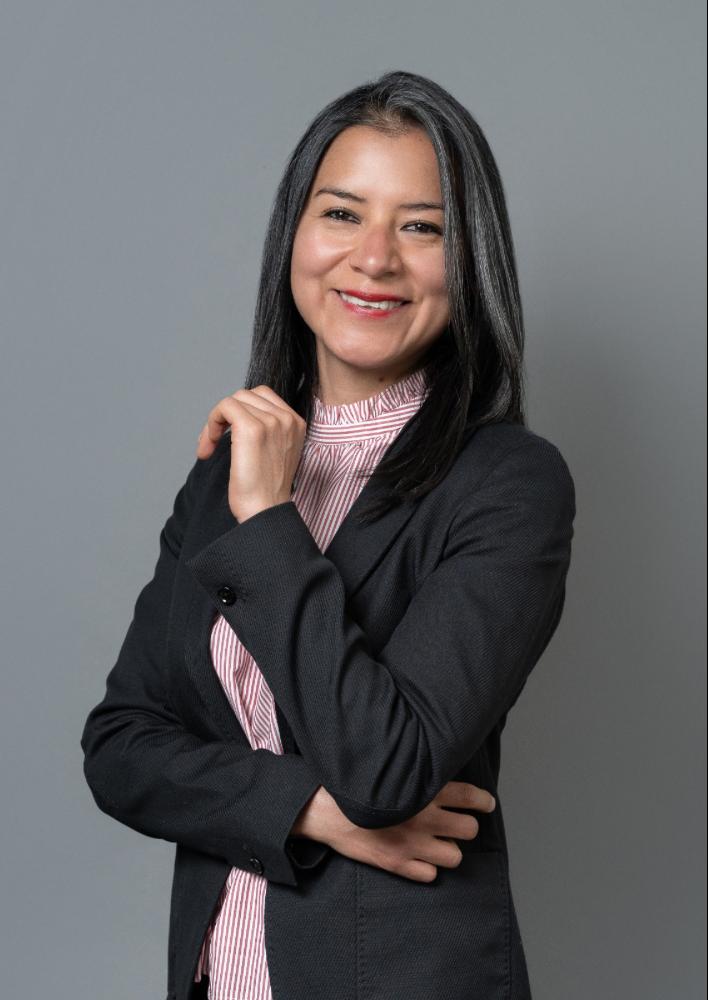
Lawyer with more than 15 years of experience in legal advice to national and multinational companies for the prevention, management and mitigation of legal risk of companies interested in investing in Mexico.
SPECIALIZATION AREAS
Legal advisor in various areas of law and litigation in Administrative Law, Labour Law, Social Security, Mexican Official Standards STPS, Civil Law, Commercial Law and Amparo.
Spanish and English
STUDIES
- Diploma in Amparo Law (SCJN 2023).
- Master ‘s Degree in Constitutional Procedural Law. Universidad Panamericana.
- Specialization in Amparo Law. Universidad Panamericana (2009).
- Law Degree UNITEC (2006)
- Training in Labour Matters, Safety and Industrial Hygiene for various companies -automotive and food sector- (2014 – 2018).
- Lecture on Labour Inspection and the New Legislation before the Mexican Bar Association, Colegio de Abogados, A.C. (2015).
- Drafting of the article Comentarios a la Ley de Amparo 2013 for the Revista Práctica Fiscal, Issue 685, May 2013.
REPRESENTATIVE MATTERS
- Issuance of the Public Policy on Minimum Storage of Petroleum Products, which was published in the Official Journal of the Federation on 12 December 2017.
- Substitution of Refining Permits for Pemex Transformación Industrial, in accordance with new legal provisions.
- Legal advice for a leading company in the food industry in the evaluation of acts carried out by the authority. Development of legal strategy to mitigate risks and economic impacts.
- Development of the legal framework in relation to new businesses in light of the Energy Reform.
- Successful implementation of preventive consultancy in various plants of the company in the field of Safety and
- Safety and Industrial Hygiene, managing to avoid the economic impact of fines due to inspection visits by the fines due to inspection visits carried out by the authorities.
- Consultancy services for BUSINESS MANAGEMENT FIRM and LEGAL SERVICES
- Reduction of legal risks and costs for the firm’s clients through the execution of due diligences.
SJN: Waiver in accordance with the principle of the primacy of reality
We consider of utmost importance that the employers of the country take into account this criterion that may be definitive in the viability of the defense of labor lawsuits based on the resignation from work.
In our country, unjustified dismissal has been one of the main causes of individual labor conflicts. According to the National Institute of Statistics and Geography (Inegi) during the year 2022, 85.8% of the cases that reached labor courts were for such reason.
In this regard, the Third Collegiate Labor Court of the Seventeenth Circuit determined that according to the principle of primacy of reality, which refers to the fact that the judge must give preference to the facts, more than to the documents offered in trial always in benefit of the worker; the labor courts must analyze the verisimilitude of the resignation, taking into account the particular characteristics of the case and the personal conditions of the worker, such as: seniority, position, age, preparation, economic solvency, payment of severance, among others.
The court based its decision on the third paragraph of article 17 of the Mexican Constitution, which establishes that: "provided that equality between the parties, due process or other rights in the proceedings are not affected (...), the authorities must give priority to the solution of the conflict over procedural formalities".
Likewise, it indicated that in accordance with Article 841 of the Federal Labor Law, the labor courts must issue their sentences on the basis of known truth and good faith, appreciating the facts in conscience, without the need to subject themselves to formalisms or rules in relation to the evidence provided by the parties, but always expressing the motives and legal grounds on which they are based, being clear and congruent with the claims deduced in the trial.
In this way, both laws provide the guideline so that in case of alleged resignation or alleged unjustified dismissal, the Labor Court has the obligation to analyze its verisimilitude, assessing the conditions of the workers.
This jurisprudence was published in the Judicial Weekly of the Federation (SJF) with digital registry 2027272 on September 22, which is why it is considered of mandatory application as of Monday, September 25, 2023; and it is important that companies comply with these new standards.
PREVENTION OF LEGAL RISK IN CRIMINAL MATTER BY COMPANIES.
The concept of Compliance was recently introduced in the Mexican legal system, in 2014 thanks to the reform of the National Code of Criminal Procedures, it became a regulatory trend for Mexican companies in order to prevent and deal with internal conflicts.
Nowadays Companies in Mexico are introducing legal- criminal compliance due to the increasing risk they face in the industry as part of their daily based activities. They ́ve opted to adopt anti-corruption management systems based on international standards, which translates into criminal compliance.
The effectiveness of criminal compliance is undisputable, the purpose is to prevent and detect possible criminal offenses within the company. With that companies’risks are declining by implementing these procedures and practices.
As a reference of the social and security relevance compliance holds, a recent study made by a consulting firm, has estimated that in the last three years, 86% of Mexican companies were victims of fraud and only the 63% took legal action against the responsible, this lack of motivation resides on the doubt people have on regards of the success of Mexican authorities in the criminal investigation and judicial system, more specifically at the impartation of justice by the state. The way these conducts occur may change but it is very common that they happen among members of the same organization and/or with third parties. It can also happen between agents of the private sector and in the public sector.
The consequences of not having an appropriate criminal compliance as a company, can be extremely serious, some of them could be fines, economic sanctions, disqualification from engaging in commercial activities and even imprisonment.
It is for this reason that it is necessary for companies to carry out crime prevention programs, train employees, create internal policies of conduct, and establish internal complaint channels, in addition to collaborating with the authorities in the event that a crime is detected, carry out a quick and effective investigation and pursue sanction if necessary.
For more information on Criminal Compliance, contact the experts in this area:
Eliser García Macdonel
egarcia@muclaw.mx
Aldo Julián Rubio
arubio@muclaw.mx
Amendment to the General Law of Commercial Companies. Meetings and Sessions by remote and technological means.
On October 20, 2023, a decree amending several provisions of the General Law of Commercial Companies ("LGSM") regarding meetings and sessions held by technological means (the "Decree") was published in the Federal Official Gazette.
The amendments to the LGSM are mainly focused on recognizing and allowing the holding of partners’ or shareholders’ meetings ("Meetings"), as well as meetings of the administrative body ("Sessions") of the companies, remotely through the use of electronic, optical or any other technology ("Technological Means").
In this regard, the points to be highlighted are the following:
1. At the time of incorporating a company, it is now an indispensable minimum requirement that the bylaws establish the rules to be followed so that the Meetings and Sessions, respectively, may be held through Technological Means.
The Technological Means are allowed as long as: (a) they allow a simultaneous participation and a correct interaction among the partners, shareholders or directors; and (b) there are means to evidence the identity of the participants and of their vote.
2. The holding of Meetings or Sessions through Technological Means is allowed mainly when the bylaws expressly provide for it or, if not expressly provided, when all the shareholders agree that it be held in this manner.
3. The holding of Meetings or Sessions through Technological Means shall not be understood as if they had been held outside the registered office or corporate domicile of the company in question and, therefore, they shall be fully valid.
4. Minutes shall be taken of each Meeting, which shall then be recorded in the respective corporate book, and shall be signed by the President and Secretary of said Meeting.
5. Additionally, limited liability companies(sociedades de responsabilidad limitada) are required to publish their calls for partners' meetings through the electronic system of the Ministry of Economy.
We remain at your service for any doubt you might have regarding the application of the provisions of the such Decree.
Statute of limitations for corporate actions
In Mexico, legal actions against partners or shareholders may be filed for different situations, such as breach of obligations, conflicts of interest, abuse of power, among others. The legal basis for such actions is based on the provisions of the Civil Code, the Commercial Code and the General Law of Commercial Companies.
First of all, it is important to note that legal actions may be brought by both the corporation and the other affected partners or shareholders, i.e., the corporation may bring liability actions against partners or shareholders who have incurred in acts contrary to the law or the corporate bylaws, and the other partners or shareholders may bring liability actions against those who have caused damage to the corporation or to the other partners.
Regarding the statute of limitations for these actions, Article 1045 of the Code of Commerce states that the actions derived from rights and obligations of the partners among themselves by reason of the corporation will be barred in five years. However, it is important to take into account that there are shorter terms for the exercise of certain actions, such as, for example, the term of one year to exercise liability actions against the administrators of the company.
In this sense, we can mention that the aforementioned term is interrupted by the filing of a lawsuit or by any other act that implies the acknowledgment of the debt or liability.
Likewise, it should be noted that those interested in exercising a legal action should consider that the statute of limitations is fatal, and there will be no room for the restitution of the same, for which reason, it is essential to consult a specialized attorney to obtain specific legal advice on each case.
Can moral damages be quantified?
SCJN. Thesis number 1a./J. 109/2023 (11a.). NON-MATERIAL DAMAGE. GENERAL GUIDELINES FOR ITS QUANTIFICATION.
The First Chamber of the Supreme Court of Justice of the Nation (SCJN) in resolving the direct amparo in review 2558/2021, analyzed the issue of moral damages, and established the guidelines to be followed to quantify it.
The origin of this matter arose from a strict liability lawsuit filed by a person after the death of his son as a result of an electric shock. In the first instance, the defendant and the insurer were acquitted; subsequently, on appeal, the Unitary Circuit Court declared that the indemnity for pecuniary damages was inadmissible; however, it sentenced the defendants for pain and suffering damages, establishing their quantification in correlation with the amount that would have corresponded to the material damage.
Finally, the plaintiff filed an amparo proceeding, which was denied, since the Collegiate Circuit Court considered that the way in which the moral damages were quantified was correct. In disagreement with this decision, an appeal for review was filed.
It should be noted that there is a complexity when quantifying moral damages due to the fact that it is considered "an injury to a non-patrimonial (or spiritual) right or interest that is a presupposition of a subjective right".
In this sense and according to the provisions of article 1916 of the Federal Civil Code (CCF), the SCJN detailed several aspects that serve as a guide when quantifying the moral damage.
1. Full reparation of moral damages must be sought at all times. Limits or legal ceilings previously established or base parameters without the possibility of modification or casuistic assessment by the judge are not accepted.
2. Compensation must be comprehensive, equitable, fair and expeditious.
3. Do not condition or limit the moral damage to the compensation for material damage, since each one responds to its own particularities. Overlapping or duplication of compensation for each of them should be avoided.
4. Do not confuse the assessment of the existence of moral damages with the quantification of the corresponding compensation; they are conceptually different operations.
5. The elements of quantification provided by law are merely indicative factors, they are a guide for the actions of the judges, based on the function and purpose of the right to compensation for pain and suffering.
. The applicability of the elements of quantification of an indemnity must be distinguished in a case of subjective civil liability from one of strict civil liability.
7. The judge must respect and protect the right to legal equality.
8. The principle of not overcompensating the victim or unjustified enrichment should be safeguarded.
9. In specific and necessary cases to reduce the compensation of moral damages, this situation will be exceptional and will occur when in the trial it is demonstrated that the compensation that proceeds will generate an oppressive burden for the responsible party in light of the economic situation of the parties; in particular, in order to protect the right to the minimum vital.
For the application of the provision in these cases, it is necessary to differentiate with the legal entities, specifically if it is an insurance company, since they cannot demand this reduction as far as their scope is concerned since, contractually, they must respond for the total of the insured amount.
President of the SCJN: The implementation of the new labor justice system urgently needs to be finalized
Norma Lucía Piña, President of the Federal Judiciary Council (CJF) and of the Supreme Court of Justice of the Nation (SCJN), stated that the constitutional reform in labor matters moved towards a new way of analyzing the relationship between workers, employers and unions, which has implied radical transformations in the administration of justice by the Federal Judicial Branch (PJF) and local judicial bodies.
In this sense, the Minister assured that in order to achieve the proper functioning of the labor justice system, the professionalization and constant training of those who work in the PJF is essential.
Likewise, she asserted that it is necessary to concretize the stages for the implementation of the reform, betting on more jurisdictional bodies, judges, operative personnel, experts and legal advisors that allow the proper functioning of the labor justice system.
He emphasized that the reform established conciliation as a mandatory pre-judicial administrative instance and that the Mexican State, being part of the Treaty between Mexico, the United States and Canada (T-MEC), is obliged to guarantee access to all persons, for the application of labor laws and to provide the necessary resources to continue advancing in the international commitments acquired in this matter.
It is important to highlight that, in the new justice system, it was proposed to work in two stages -one of conciliation, the other of trial- with the objective of reducing the time to resolve conflicts to a maximum of eight months. The first stage of conciliation is a pre-judicial requirement and has a limit of 45 days. The second stage will take place when the conciliation fails and the "No Conciliation" act is issued; subsequently, the worker may go before the competent Federal or Local Court, which is supposed to resolve the dispute within a term not exceeding six months.
Likewise, it is pertinent to point out that, according to figures of the current administration, the new Labor Justice model has allowed four out of every five labor conflicts to be resolved through Conciliation, and that of these 78% are concluded within 25 days after the request is made before the Federal Center of Conciliation and Labor Registry. In practice, we can see that the conciliations are inclined to favor the workers, forgetting the workers' interests.
For his part, Héctor Arturo Mercado López, Magistrate of the First Collegiate Tribunal in Labor Matters of Mexico City, considered that the current reform "was made by forced marches", and affirmed that the country's labor justice system must be evaluated.
In the face of the polarized opinions generated by the reform to the new labor justice system, the challenges are still present, since there are many companies and unions that are still not clear about the new labor regulations, since it implies not only changing rules and processes, but also a true transformation of the labor culture where respect for the human rights of the parties and a healthy balance between the factors of production prevail.
For any questions regarding this topic, please contact our experts in the labor area:
Esther Uribe Soria
euribe@muclaw.mx
Mexico: Global investment focus
Mergers and acquisitions increase due to the rise of nearshoring
With the increase of the so-called nearshoring in Mexico, the country has become one of the main investment focuses worldwide, thanks to the production costs and the logistic facility due to its proximity to the United States; an example of this is the manufacturing sector, which grew 1.7% in January 2023, compared to the same period in 2022, according to the National Institute of Statistics and Geography (Inegi).
This has led to an economic growth of 3% for the whole year, which has been reflected in the increase of Mergers and Acquisitions (M&A) throughout the country. This increase reached a value of 7.8 billion dollars in the first four months of 2023, an increase of 189% over the 2.7 billion dollars of the same period last year.
Thus, and according to the firm that tracks mergers and acquisitions, Private Equity & Venture Capital, as well as comprehensive corporate information in Latin America and Ibero-America, Mexico ranked second in the M&A business in the region, only surpassed by Brazil.
The report, which also presented a quarterly analysis of the Mexican panorama in which the market dynamics can be evaluated, gathered a complete and correlational study of the most active economic sectors, as well as the most outstanding transactions, which allowed concluding that, since January 2022, U.S. companies were the ones that carried out the largest number of acquisitions with Mexican companies.
It is important to highlight that during the first four months of the year, the sectors that have presented an increase in M&A activities of Mexican companies abroad are: industrial, with 43.8%; information technology (IT), with 12.5%; financial, with 12.5%; consumer, with 12.5%; and telecommunications, with 6.3%.
In the current situation, transactions and partnerships must be strategic and meticulously chosen to represent a clear benefit for both parties, since all procedures related to nearshoring also present legal, cultural and operational challenges and considerations that must be carefully evaluated in the M&A process. Furthermore, decision evaluated in the M&A process. Furthermore, decision making in this area must be based on a thorough analysis of market conditions, strategic objectives and the financial viability of the proposed operations.
For this reason, it is essential to have a comprehensive and specialized legal team.
For more information, please contact us:
Bernardo Llaca Martínez
bllaca@muclaw.mx
Luis Cuesta Salces
lcuesta@muclaw.mx
dcanals@muclaw.mx
Diego Canals López Velarde
